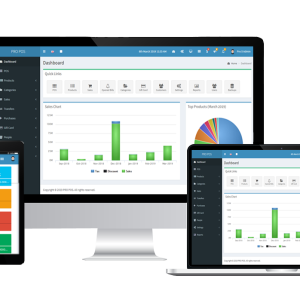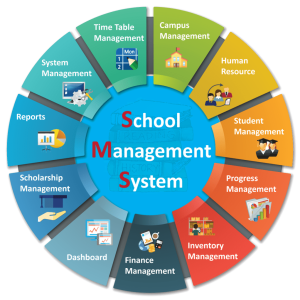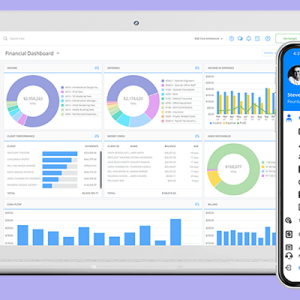
Logistics Management System
It enhances productivity, meets customer expectations, leverages technology, and reduces costs. By adopting the latest advancements in logistics, businesses gain a competitive edge and achieve sustainable growth.
A logistics management system plays a crucial role in the success of companies in the transportation and supply chain industry. It offers several advantages that contribute to the overall efficiency and profitability of businesses. Here are the major benefits of logistics management:
- Real-Time Visibility: Logistics management provides real-time visibility throughout the supply chain operations, allowing businesses to make well-informed decisions. This visibility helps identify supply chain problems, streamline communication, and increase productivity. By leveraging new-age technologies and automation, logistics management offers access to timely information, improving transparency and opening up new opportunities.
- Enhanced Customer Experience: Logistics optimization improves internal and external communication, creating transparency in operations. This transparency enables customers to track their orders and obtain immediate responses to their queries. Logistics management plays a crucial role in improving customer experience and brand loyalty by providing real-time information and efficient customer service.
- Reduced Operational Costs: Logistics management reduces overhead costs by automating and optimizing activities. It enables better control of inventory levels, analyzes demand and supply, and avoids purchasing redundant logistics supplies. Additionally, logistics management helps in preventive maintenance, reducing costs by preventing vehicle breakdowns. Streamlining processes in transportation contributes to cost reduction and overall efficiency.
- Scalability: Effective logistics management optimizes the supply chain, allowing businesses to handle increased demand or expansion. By calculating inventory needs and planning strategies, logistics management ensures responsiveness to customer demands. It facilitates end-to-end visibility across the supply chain, supporting expansion and enabling synergic partnerships.
- Risk Management: Logistics management helps organizations develop effective risk management plans to prevent disruptions. By investing in fleet management systems and predictive analytics, businesses can predict demand and supply, evaluate logistics performance, and execute contingency plans. Proactive risk management provides valuable data for addressing disruptions and ensuring business continuity.
- Warehouse Management: Logistics management monitors and controls warehouse operations, ensuring the timely distribution of goods. It optimizes aspects such as picking and packing, inventory management, storage, and shipping. Effective warehouse management maximizes space utilization and improves the overall efficiency of the transportation industry. Leveraging the right technology in warehousing enhances operational efficiency.
- Preventive Maintenance: Planning and scheduling vehicle maintenance is essential in supply chain operations. Advanced technologies like AI, IoT, Big Data, and Machine Learning help monitor inventory and enable preventive maintenance. Logistics management ensures that the right amount of stock is maintained, improving the reliability and lifespan of inventory. Preventive maintenance reduces equipment failure and unplanned downtime.
- Boost Business Profitability: Logistics processes, driven by advanced technologies, enhance business efficiency and profitability. By controlling and managing the supply chain ecosystem, logistics management eliminates defects and deviations, leading to improved operations. Accurate and timely order delivery enhances customer satisfaction, giving companies a competitive edge. Clear visibility into operations, facilitated by logistics management, positively impacts business growth.
- Route Planning: Choosing cost-efficient routes improves customer service and reduces costs. Logistics management utilizes real-time route planning software to amplify timely delivery. Monitoring driver and vehicle status ensures adherence to road safety rules. Smart route planning reduces fuel consumption and eliminates delivery delays. Optimizing routes and schedules positively impacts last-mile logistics and customer satisfaction.
- Quality Assurance: Logistics management establishes end-to-end visibility, improving the overall quality of goods and services. It follows a process-oriented approach and maintains quality standards in supply chain operations. Monitoring changing market demands and addressing disruptions ensures high-quality services. Logistics management enables businesses to resolve quality issues and monitor conditions in freight, such as temperature control and spoilage.
- Enhanced Distribution Network: Effective logistics management optimizes distribution networks, enabling organizations to embrace authentic and efficient delivery operations. Fine-tuning distribution networks to meet organizational needs leads to profitability in a competitive market. Well-established networks provide interconnected logistics solutions for specialized duties.
- Demand Forecasting: Logistics management facilitates operational planning by accurately anticipating supply and demand. By implementing forecasting models and leveraging cutting-edge technology and data analytics, logistics management increases accuracy and solves complex problems in transportation. It streamlines planning processes, determining safety stock requirements and improving overall efficiency for companies and customers.
- Automate Operations: Logistics management utilizes advanced technologies like AI, IoT, Big Data, and Blockchain for automation. Automation eliminates manual errors and dependencies in the supply chain, streamlining processes and scaling businesses. Real-time data and predictive analytics enable informed decision-making and improve operational efficiency.
- Quick Response: Logistics management quickly responds to customer demands, enhancing supply chain efficiency. Digital platforms facilitate effective communication and understanding of customer needs. By embracing technology and communicating effectively, logistics management ensures timely responses, increasing the robustness of supply chains during crisis situations.
In conclusion, logistics management offers numerous advantages that prepare supply chains for the future. It enhances productivity, meets customer expectations, leverages technology, and reduces costs. By adopting the latest advancements in logistics, businesses gain a competitive edge and achieve sustainable growth.
There are no reviews yet.
Only logged in customers who have purchased this product may leave a review.



